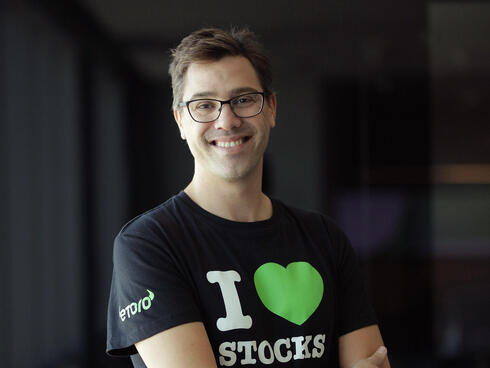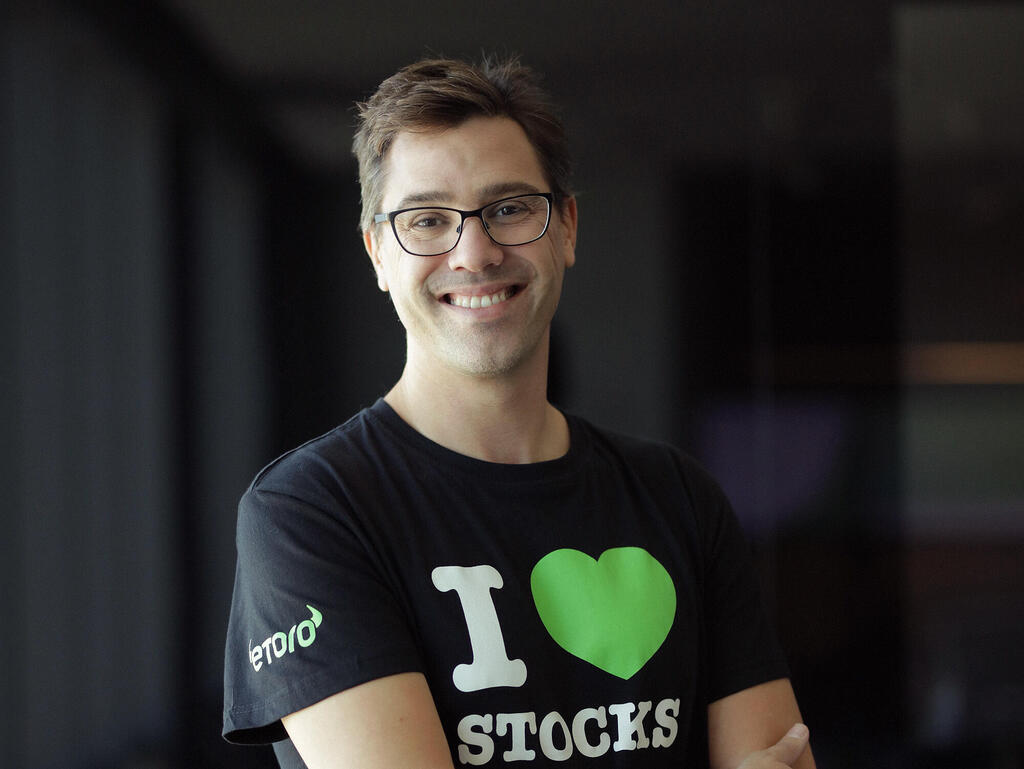
Who's cashing out in eToro’s IPO? Founders, ministers, and moguls eye big gains
With shares priced at $46–$50, Israeli fintech insiders prepare for a $250 million sell-off.
Is eToro’s long journey to Wall Street about to end with a massive cash-out? The Israeli fintech company is executing its planned IPO on Nasdaq, after halting its IPO plans a month ago amid high market volatility. eToro aims to raise $217 million for the company at a $4 billion valuation—but the bigger story may be the $250 million in share sales by existing insiders, as the offering prices between $46.00 and $50.00 per share.
The Israeli fintech unicorn missed the 2021 IPO window due to regulatory issues related to cryptocurrencies and renewed its IPO attempt after the U.S. elections, riding what appeared to be a Trump-fueled tailwind for the crypto sector. But following Trump’s tariff announcement in early April and the resulting turmoil on Wall Street, eToro once again postponed its offering.
Now, after U.S. indices erased most of their post-tariff losses, eToro is submitting its final IPO prospectus—including details on who’s selling, and how much they’re set to earn.
According to the document, the securities trading platform founded by Yoni and Ronen Assia in 2007 will try to raise $217 million through primary shares, at a price range of $46–$50 per share. In addition, insiders are selling about $250 million worth of shares, bringing total proceeds from the IPO to roughly half a billion dollars.
The IPO reflects a valuation of approximately $4.6 billion at the midpoint. The offering is led by Goldman Sachs, Jefferies, UBS, and Citigroup, and if successful, eToro shares will trade under the ticker ETOR.
Who’s Selling—and for How Much
Among those offloading shares is Minister Nir Barkat, a former Jerusalem mayor and now Minister of Economy, through his investment group BRM. Barkat and his partners—including his brother Eli, and Yuval Rakavy and Omri Mann—own 8.4% of eToro’s Class A shares and 9% of Class B shares, giving them 8.95% voting power. Their stake is valued at about $400 million based on the IPO pricing, and they plan to sell 419,000 shares, expected to net them $19.3–$21 million.
Yoni Assia, co-founder and CEO of eToro, holds 9.6% of the voting power and is set to sell 549,000 shares, worth between $25.3 million and $27.5 million. His brother Ronen Assia, who co-founded eToro and now works with the Team8 venture group, owns 3.5% of the voting shares and will sell 250,000 shares, potentially bringing in $11.5–$12.5 million.
Their father, veteran Israeli tech entrepreneur David Assia, owns 1.4% of eToro and will sell 65,000 shares, for $2.99–$3.25 million.
Within the broader family circle, the iAngels VC fund—co-founded by Shelly Hod Moyal and Mor Assia (Yoni’s spouse)—also holds 1% of eToro’s shares.
Other notable sellers include: Hedva Ber, former supervisor of banks at the Bank of Israel and now Global COO and Deputy CEO at eToro, who will sell 1,500 shares, earning $69,000–$75,000, and Avner Stepak, an eToro director, who will sell 8,500 shares for $391,000–$425,000.
A notable and somewhat controversial shareholder is SBT Venture Capital, the VC arm of Russian state-owned Sberbank, which holds 6.5% of Class A shares. Due to international sanctions, the Russian bank currently has no voting rights and is not allowed to sell shares in the IPO. Sberbank had previously been slated to receive a significant portion of Class B shares.
From SPAC Dreams to Public Reality
eToro first began the IPO process in 2021 at the height of the tech bubble, pursuing a SPAC deal at a $10.3 billion valuation. As regulatory pressure mounted and market sentiment shifted, the valuation target was slashed to $8 billion before the deal collapsed altogether. The company ultimately raised funds privately at a $3.5 billion valuation and waited for a more favorable window—now seemingly open.
While Trump has signaled a desire to ease crypto regulations, which may help the fintech sector, eToro is also buoyed by the performance of Robinhood, its main U.S. rival. Robinhood’s stock has jumped 30% since the start of 2025 and now trades at a $43 billion valuation—representing a 28x multiple on expected earnings.
If eToro were valued at that same multiple based on its $192 million net profit in 2024, its valuation would surpass $5 billion. Yet IPO conventions—especially in a volatile market—require companies to “leave money on the table,” issuing shares at a discount.
eToro’s revenue surged to $931 million in 2024, up from $639 million in 2023. The spike was driven almost entirely by crypto trading: volumes hit $12 billion in 2024, compared to $4 billion the year prior. Revenue from more traditional asset classes—stocks, commodities, and forex—remained relatively flat, at $328 million in 2024, slightly above $305 million in 2023, but still down from $393 million in 2022.
The company now manages 3.5 million funded accounts. For comparison, Robinhood reported 25 million active accounts in 2024—making eToro’s $4.6 billion valuation appear modest next to its U.S. counterpart.
But for early shareholders and founders, the IPO is already delivering what they waited years to realize: a highly profitable exit.














